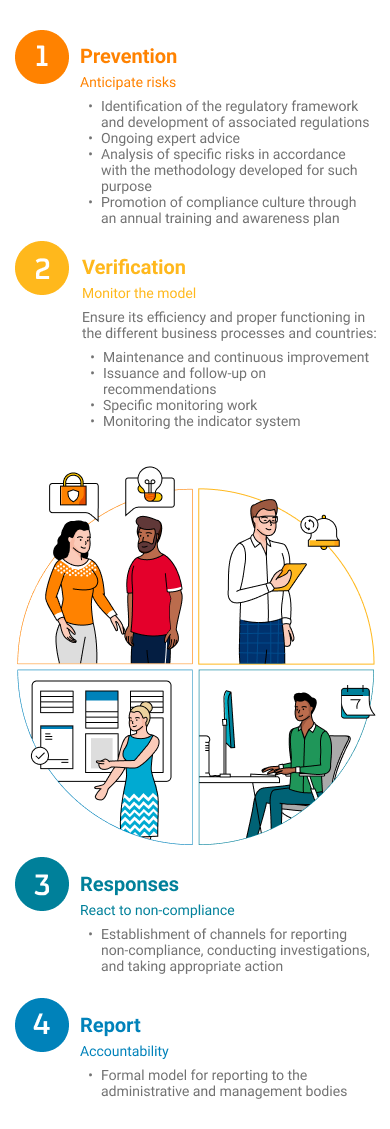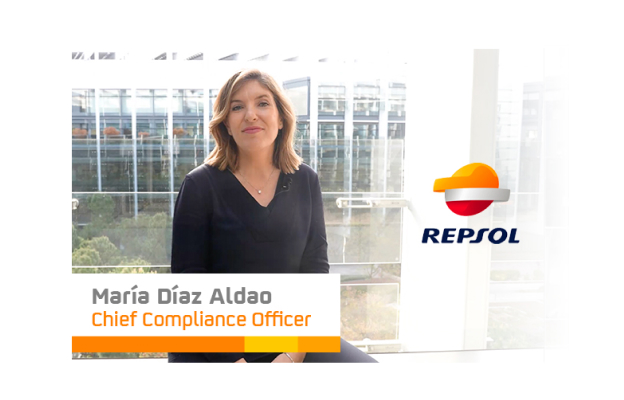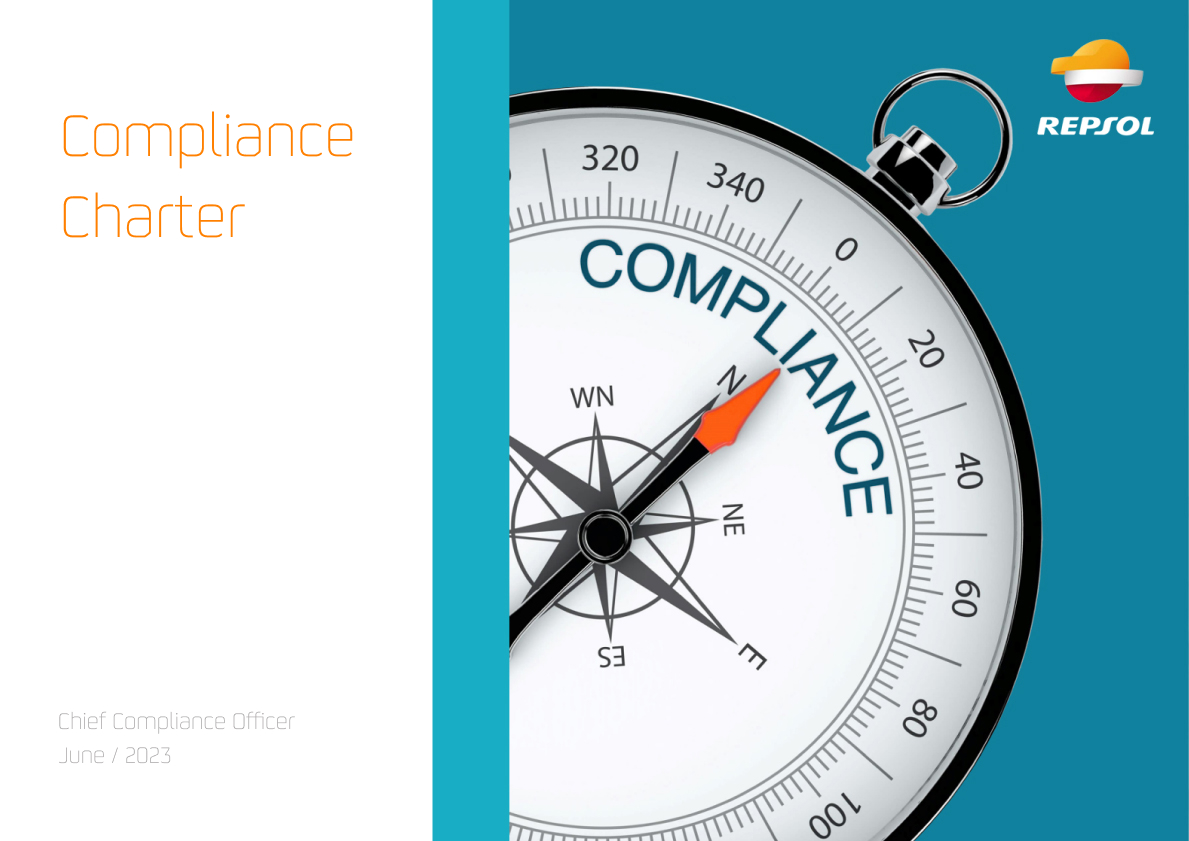Meet the team
Meet the team
Comprehensive Compliance Model
Comprehensive Compliance Model
Compliance is vital to us. That is why we have a document that sets out our procedures and reflects our commitment. It aims to prevent, detect, respond, and report potential risks and is structured into 4 stages:

The six areas of action of our Compliance function:
Integrity
We reject all forms of corruption and fraud, public or private, and we apply a zero-tolerance approach to any non-compliance.
Crime prevention
We have a Crime Prevention Model as a system for prevention, detection, and response to possible criminal behavior.
Anti-trust
A competitive market generates lower prices, better quality services, more product variety, and greater innovation.
Money laundering and terrorist financing
We guarantee safe operations with procedures that meet all legal requirements.
Data protection
Your data is solely yours and we take care of protecting it with maximum security.
Sanctions and export control
The international legal framework regarding sanctions is a matter of utmost importance that we take into account in our decision-making process.
Ethical data: trust in privacy
From the Data Protection Office, integrated in the Compliance area, we supervise and manage everything required to comply with personal data protection, maintaining higher standards than those established by current legislation. For any questions on this matter: protecciondedatos@repsol.com



